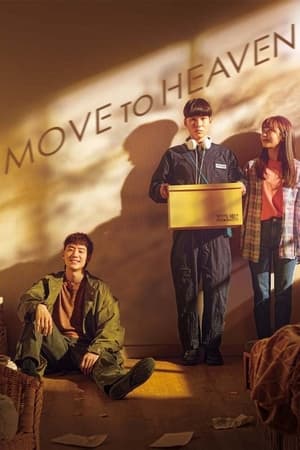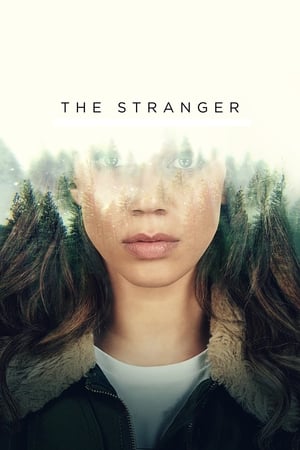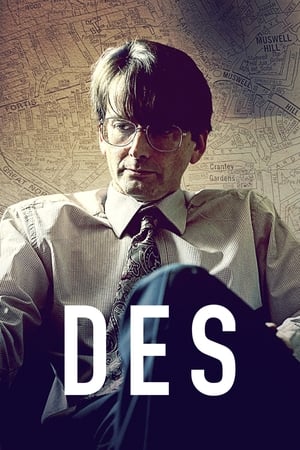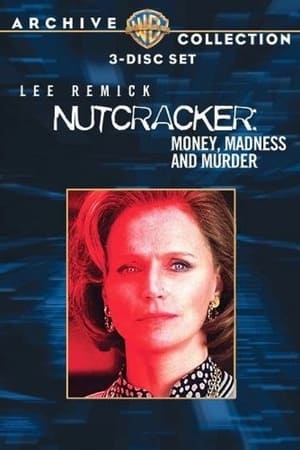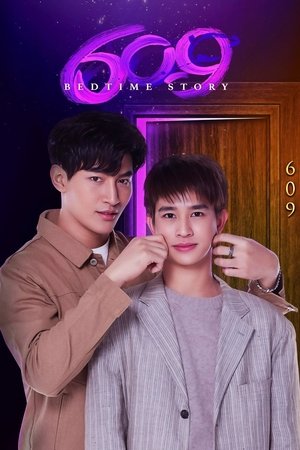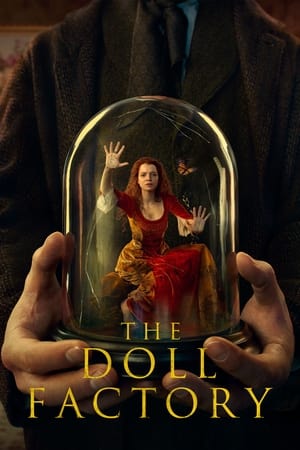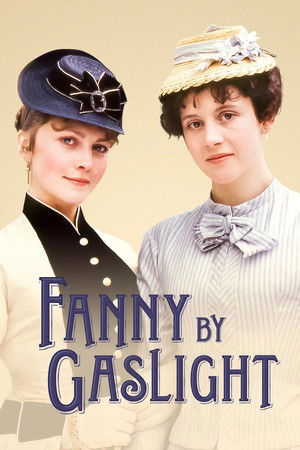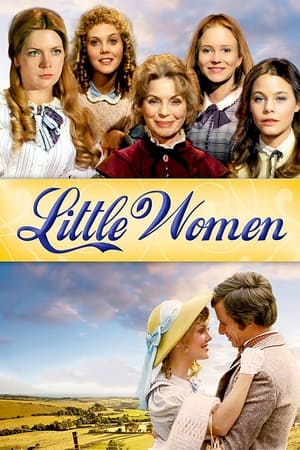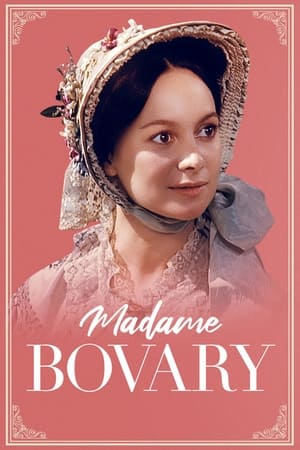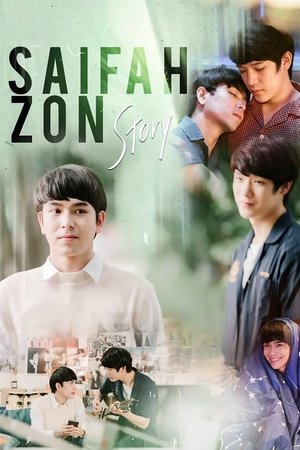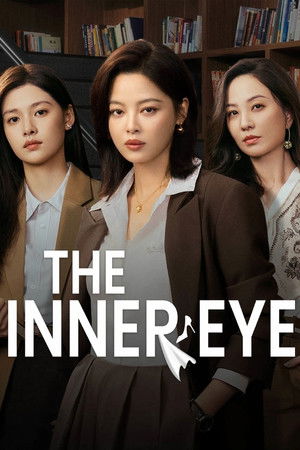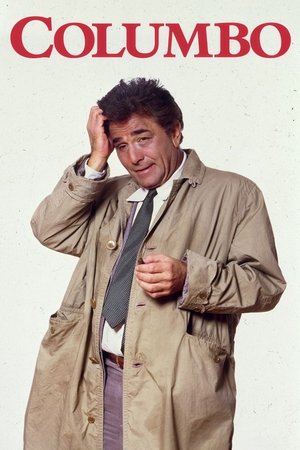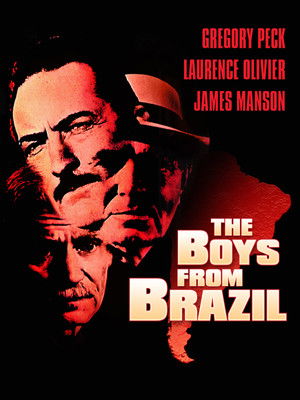Overview
Reporter Camille Preaker confronts the psychological demons from her past when she returns to her hometown to investigate the murders of two young girls.
Reviews
Ok so I only originally watched this to see amy Adams but as it turned out the show wasn't bad it had alot of potential there was mystery and adventure I can see this show going far but my advice is don't get HBO just to watch this particular series but if you already have HBO to give it a try I did love Amy Adams as usual shes brilliant and very good here we shall see what happens with the show from here
SPOILERS (Mild)
Actress Elizabeth Perkins in an IMDB interview said the director would get so involved in the atmosphere of the show that he had to be often reminded there was a plot and things had to move along!
That pretty much sums up the entire problem with "Sharp Objects". The show meandered and stood in one place so many times it resembled a Still Life painting of a crumbling southern town with a crumbling old mansion and a lone car (Camille's) making it's way though a deserted street.
Was it well acted? Yes. Was it beautifully shot? Yes. Was it compelling enough to be 8 hours? No. It was a pretty standard who done it with the requisite surprise at the end. And I do not mean the scenes during the credits which were so fast and MTV style edited they were pointless. Camille's discovery before the credits made it clear who the killer really was. That they had help was no surprise either. Why was no surprise, too, though it wasn't addressed it was targeted a couple eps prior: the murdered girls simply did not fit in. They were different. They weren't "good girls".
Over all if a Speilberg had been controlling the direction the show would have hit all the emotional points and been a four hour mini-series!
**_Thematically interesting and brilliantly acted, but painfully slow and far too long_**
> _Sometimes I think illness sits inside every woman, waiting for the right moment to bloom. I have known so many sick women all my life. Women with chronic pain, with ever-gestating diseases. Women with conditions. Men, sure, they have bone snaps, they have backaches, they have a surgery or two, yank out a tonsil, insert a shiny plastic hip. Women get consumed._
- Gillian Flynn; _Sharp Objects_ (2006)
Although this eight-part HBO limited series has been advertised as a murder-mystery, really it's a character study, with the murder plot functioning primarily as an impetus to facilitate engagement with the characters surrounding it. Nothing wrong with that, of course; the first season of _True Detective_ (still one of the finest seasons of TV ever made) worked as well as it did not because of the ostensible whodunnit (when the reveal finally came, it was almost an after-thought), but because of the psychological deep-dive into its two fascinating and polar-opposite central characters. Similarly, _The Night Of_ (2016) focused almost entirely on the trio of men at its centre (accused, cop, lawyer), to such an extent that it didn't bother revealing who the killer was at all. _Sharp Objects_ is similarly interested not in who's behind a pair of murders in a small Missouri town, but in how those murders affect a trio of women caught up in the investigation (a journalist, her antagonistic mother, and her provocative half-sister).
Feminine in design rather than inherently feminist, the show is a portrait of tainted motherhood and corrupted sisterhood, and is best categorised as a piece of Southern Gothic horror/melodrama, half Erskine Caldwell and half Tennessee Williams, garnished with a dash of Harry Crews. More concerned with internecine inter-generational conflict, matrilineal dysfunction, and how the rotten core of small-town America can breed not just old-fashioned sexism and bigotry, but festering cyclical violence, the main focus is not on major plot points or momentous reveals, but on how the past bleeds into the present and how difficult it can be to escape from past trauma. But whilst the acting is exceptional, and the show is well directed and edited, much like the first season of _Big Little Lies_ (also a HBO series with a female-centric point-of-view based on a novel that isn't really about the murder at its centre), it left me utterly unengaged, completely uninterested in any of the characters, and fighting interminable boredom for much of its eight hours (it's yet another example of one of the worst elements of Prestige TV; series which are far, far longer than they need to be).
_Sharp Objects_ tells the story of Camille Preaker (an exceptional Amy Adams), a reporter for the _St. Louis Chronicle_, who is sent back to her hometown of Wind Gap, Missouri to report on a possible serial killer; the previous summer, a 13-year-old girl was abducted and murdered, and several days ago, a 14-year-old was reported missing. A barely-functioning alcoholic prone to self-harm, primarily in the form of carving words into her flesh, Camille maintains she is ill-prepared for the effect being home could have on her psyche, but her editor, Frank Curry (an excellent Miguel Sandoval), who's been her surrogate father for years, believes the best thing for her is to confront her demons head-on. Central amongst them is her mother, Adora (a spectacular Patricia Clarkson), an old-fashioned Southern dame who owns the only major employer in Wind Gap, a pig-farm and slaughterhouse. Looked down on by Adora with a barely-concealed disappointment, Camille is especially haunted by the memory of her younger sister Marian (Lulu Wilson), who died when they were still children, although Adora has insisted ever since on maintaining Marian's bedroom exactly as it was when she died. In the years since Camille moved away, Adora married the soft-spoken and mild-mannered Alan Crellin (Henry Czerny), and had another child, Amma (Eliza Scanlen, in a breakout role), who fascinates Camille with her dual personality – perfect dutiful daughter when Adora is around, and centre-of-attention party-animal when she's unsupervised. Whilst local police chief Bill Vickery (Matt Craven) believes the murderer is a drifter passing through town, Kansas City detective Richard Willis (Chris Messina) suspects either Bob Nash (Will Chase), father of the murdered girl, or John Keene (Taylor John Smith), brother of the missing girl. As Camille begins digging into the case, however, she quickly comes into conflict with Vickery and Willis, neither of whom are very receptive to her theories that the killer may not be male. Indeed, the only person in town who seems happy with her presence is Jackie O'Neill (a scene-stealing Elizabeth Perkins), an old friend who knows everything about everyone and who has little time for Adora. When the case takes a major turn shortly after her arrival, Camille begins her own investigation, and soon interviews a local boy who claims he saw the most recent abduction, which he says was perpetrated by the Woman in White, the child-abducting subject of a local legend. Vickery dismisses the story, however, as everyone knows that the Woman in White isn't real. But, given the strange goings-on in Wind Gap, Camille is no longer so sure.
Based on the 2006 Gillian Flynn novel of the same name, _Sharp Objects _was written primarily by showrunner and creator Marti Noxon and Flynn herself, with directorial duties handled by Jean-Marc Vallée, who also helmed the aforementioned first season of _Big Little Lies_. And like all of his work, the show is aesthetically impressive, especially in how he creates a tangible sense of place (Wind Gap is very much a fourth leading character) and how he integrates the past into the present via fleeting snippets of memories, hallucinations, and dreams. Although six editors are credited, Vallée himself is the only one who worked on every episode (as Jai M. Vee) and this is important insofar as the editing is very much the show's calling card both aesthetically and thematically. Vallée has erroneously stated that the entire show is presented from Camille's perspective, which isn't the case, as there are a few scenes in which she doesn't appear (usually involving Vickery and Willis). However, she does feature in a good 90% of the material, and Vallée attempts to tie us rigidly to her point-of-view by denying us an omniscient perspective and, more importantly, by drawing us into her psyche via the editing, with her return to Wind Gap evoking a flood of childhood memories (in which she's played by Sophia Lillis).
The editing rhythms will definitely throw some people off initially, with the frequent one second (or less) cutaways seemingly having more in common with the frenetic editing style of something like Adam McKay's _The Big Short_ (2015) and _Vice_ (2018), or Oliver Stone's "horizontal editing", deployed in films such as _JFK_ (1991), _Nixon_ (1995), _U Turn_ (1997), and, especially, _Natural Born Killers_ (1994). However, a more apt comparison would be the free-associative editing style of films such as Alain Resnais's _Hiroshima Mon Amour_ (1959), Nicolas Roeg's _Don't Look Now_ (1973), Andrei Tarkovsky's _Zerkalo_ (1975), and Terence Davies's _Distant Voices, Still Lives_ (1988).
Oftentimes, Vallée uses external stimuli to trigger a memory – so, for example, adult Camille lies in bed and stares at a crack on the ceiling and when we cut back to the bed, she's a child looking at that same crack; adult Camille is shown opening a door in the present, and we cut to child Camille entering a room; adult Camille hears a song and closes her eyes, and when she opens them, she's a child listening to the song on the radio (it's not entirely unlike Marcel Proust's use of "involuntary memory" in _À la recherche du temps perdu_). Indeed, Vallée allows the past and present to blend to such an extent that it can often be difficult to ascertain exactly where we are in the timeline – is what Camille is seeing something she sees now or something she remembers from the past. On occasion, Vallée actually integrates both possibilities into the same scene, the best example of which is found in "Milk", the last episode, where he allows something to bleed over the editing from past to present and vice versa, making it initially impossible to determine if it's a memory or something in the here and now. Elsewhere, he muddies the waters even further by showing us something that's neither past nor present, but imagination/hallucination.
This editing technique inculcates us into Camille's fractured mind, whilst also hinting at the nature of her past trauma, without ever being too explicitly revealing. There are some exposition-heavy scenes in "Falling", the penultimate episode, but really, they only confirm what the puzzle-like editing has already revealed. As will be discussed in a moment, Vallée grossly overuses the technique to the point of neutering it of its potency, but that notwithstanding, it's a good example of the importance of the "show, don't tell" philosophy, as well as a great example of content generating form and form simultaneously giving rise to content; the memories are always tied to Camille's fragmented psychology, with the brief snippets of recollection acting like splinters impinging on her adult existence. When a man whom she knew when she was younger apologises to her for something he did when they were children, she tells him, "_just forget about it, all right? I have._" Which, of course, she hasn't.
Another interesting aesthetic aspect of the show concerns the opening credits. In the first episode, "Vanish", the credits establish a kind of sleepy 1950's Americana vibe, due in no small part to the use of Franz Waxman's "Dance and Angela" from George Stevens's _A Place in the Sun_ (1951). However, the second episode, "Dirt", features a slightly different credit sequence, and a dance remix of "Dance and Angela", which doesn't sound entirely different from LCD Soundsystem's "Black Screen", which features prominently in the episode. The third episode, "Fix", features another slightly different title sequence and a solo piano version of "Dance and Angela", which is akin to the music that is Alan's obsession. All eight episodes ultimately feature different opening credits (which become more contemporary with each passing episode) and a different remix of the song. Sure, _The Wire_ did this already, with each season featuring a different title sequence and a different remix of Tom Waits's "Way Down in the Hole", but for _Sharpe Objects_ to do so episode by episode is pretty notable, and serves to announce just how important music will be in the series. The centrality of music is one of Vallée's trademarks, and as in much of his _oeuvre_, the music in _Sharp Objects_ is entirely diegetic.
The show's other important aesthetic element is its sense of place. Taking place during a hot summer in which the entire cast are permanently sweating, one can practically feel the humidity rising from the screen and smell the pig farm on which so many of the town's people work. But it's not just the sense of tangibility; at times, Wind Gap comes across as surreal enough to be the location of a David Lynch film. The introduction to the town, for example, is a series of long tracking shots which show next-to-no people, as if the place has been abandoned. Later we see Amma and two of her friends perpetually roller-blading around town like a 21st century equivalent of the _Moirai_. And that's not to mention the juxtaposition of Wind Gap's two identities. On the one hand, it's an old-fashioned God-fearing southern town, proud of its heritage, especially on "Calhoun Day" – a huge barbeque celebrating how Millie Calhoun, a loyal Union wife, chose to be raped by Yankee soldiers rather than betray the fledgeling town. On the other, it's a place where one can easily get access to drugs and where the hedonism of youth runs unchecked under the façade of respectability. The motif of white picket fences masking inherent moral corruption is nothing new, of course. One need only refer back to something like _Blue Velvet_ (1986) to see it done perfectly. But it can't be denied that the show's sense of place is exceptionally realised – from the vodka-infused sweet tea that Jackie and her friends are permanently drinking to the cabin in the woods plastered with pictures of hard-core porn to the Xanadu-like house in which Adora, Frank, and Amma live to the little boy who lives with his meth-addicted mother and who carries a gun to ensure their safety.
Thematically, the show covers a lot of ground, almost all of it tied to female experience, with the male characters very much secondary to proceedings, and obviously, a lot of the thematic content concerns motherhood/daughterhood. Adora is presented as a woefully bad mother who made little secret of the fact that she preferred Marian to Camille, and who wishes it had been Camille who died – in an early memory, when Camille tries to comfort Adora after Marian's death, Adora literally shakes her off. In another scene, when adult Camille arrives at the house upon her return to Wind Gap, rather than be happy to see her, Adora icily tells her, "_I'm afraid the house is not up to par for visitors_". In a rare moment of openness, as Camille struggles to understand why Adora treats her the way she does, Adora tells her, "_you can't get close. That's your father. And it's why I think I never loved you. You were born to it, that cold nature. I hope that's of some comfort to you_". Later she admits that what she wanted from Camille more than anything was the one thing Camille couldn't give her – she wanted Camille to need her.
In a more general sense, the show deals with how women respond to familial trauma, and what can happen when they suppress the effects. Even Adora is a victim of bad parenting, as her mother used to sneak into her room at night and pinch her, later driving her into the woods and abandoning her. In this sense, the show examines the vicious damage that can be done to young girls by those who are supposed to protect them. It doesn't engage with feminism at a political or cultural level, but it certainly does so at a personal level, arguing that the pain experienced by abused women is just as valid as that experienced by abused men, that the manifestations of trauma can be just as catastrophic, and that the anger engendered can be just as self-destructive. We're very used to seeing stories focused on angry, damaged, hard-drinking male characters with dark backgrounds who must fight to control the violence within them, but _Sharp Objects_ is a story focused on the female equivalent of that trope. Indeed, Clarkson tells HBO.com,
>_it's wonderful for us, as women, to be portrayed as heroes and warriors. And that is much-needed in our zeitgeist. But we can't forget there's also darkness. Many women have illnesses. They have suffered the loss of a child. They have not had perfect marriages. They have troubled children. And these are the stories we must continue to tell - these kinds of female stories._
Wind Gap is a town where women are locked into the virtuous virgin/rampant slut binary, a binary created by men. It's a place where a woman's worth correlates directly with her femininity, her maternal instincts, and her obedient acceptance of her place in androcentric societal structures - everything Camille is not, hence the town's wholesale rejection of her return.
In terms of the acting, there isn't a weak link. Adams completely disappears into Camille, whom she plays as someone who's gotten so used to living in pain that one imagines if her pain were taken away, she'd be lost. A determined and driven individual, she's also fundamentally damaged, almost wholly broken ("_my demons are not remotely tackled, they're just mildly concussed_"), and she wears a shield for pretty much the entire eight hours, only once really letting someone inside, in an act which surprises her more than anyone. As Adora, Clarkson is all wounded pride and brittle self-defence, her politeness and respectability masking secrets and pain. She plays Adora as a passive-aggressive monster, but she also manages to elicit a modicum of empathy. Very much selling the image of herself as a steel magnolia, she's unable to hide the fact that she's wilting, and the brilliance of the performance is that as Adora reaches down to try to retrieve the petals, we feel sorry for her. As Amma, Scanlen is especially good at being an annoying spoiled brat; by the third episode I wanted to throttle her, which is exactly the point, and it really doesn't matter which facet of her personality she's playing - the dutiful daughter from another era who wears elaborate dresses and plays with a doll's house, or the roller-blading lollypop sucking teenage temptress. Also worth noting is the work of Perkins as Jackie, perfectly capturing the sarcasm and irreverence without ever allowing it to cover up the pain inside. Finally, in a small role, Sandoval is brilliant as Frank, easily the most sympathetic and kind-hearted character; in a show where people spend most of their time verbally berating others, his scenes with Camille are a breath of non-toxic air.
However, for all that, I simply couldn't get into _Sharp Objects_, and by no means did I enjoy it (although I certainly admire much of it). The biggest problem is the pace, which is akin to swimming through treacle. Yes, I understand it's a character drama, not a plot-heavy murder-mystery, but so too was the first season of _True Detective_ and never once did I feel that show was moving too slow. With _Sharp Objects_, as episode after episode after episode ended with literally nothing happening, eventually I just stopped caring. Aside from a major incident in the first episode, and a couple of big reveals in the penultimate and the last episode, almost nothing happens. And that's not hyperbole, I mean it very literally. Tied to this is that the show is far, far too long. The novel is 254 pages, and could easily have been adapted in a four-episode run, but trying to stretch it out over eight (it runs 385 minutes) means that there are long periods were the narrative simply stops dead, with the characters not interesting enough to take up the slack. This is especially pronounced in "Ripe" and "Cherry", the fourth and sixth episodes, respectively, which are mind-numbingly dull. To take up some time, the show uses the flashback technique. And at first, that works very well, but the flashbacks happen so often that they lose their potency and end up feeling like filler designed only to artificially prolong the runtime. It also starts to feel like Vallée is so in love with the technique that he's using it arbitrarily rather than in the service of character or plot.
Additionally, it abounds in clichés – from the alcoholic hard-as-nails journalist to the incompetent local police chief (who actually says at one point "_my town, my case_") to the out of town detective to whom nobody listens to the gossiping women to the various suspects who are obviously red herrings. Vallée also has a tendency to overuse certain images, thus robbing them of their effectiveness – Amma and her friends roller-blading around town, Amma playing silently with her giant dollhouse modelled on the Crellin family home, Camille thinking back to her time in rehab, shots of the child Camille being chased through the woods by a group of jocks. This is especially true of the water bottle Camille carries around, which is always filled with vodka. Over the course of the first few episodes, we see this bottle over and over and over and over again. Why? Three or four times was enough to show us how reliant on alcohol she is, we didn't need to see her fill it 847 times.
There's a lot to admire in _Sharp Objects_, but there's precious little to like. Although not exactly a work of post-#MeToo fempowerment, it certainly has a female-centric perspective and focus, and its examination of issues usually associated with men is interesting, saying some fascinating things about female trauma. The performances are top-notch and the editing is decent (albeit overused), but all in all, the show did little for me. I understand it's less about the murder mystery than the characters and that it's designed holistically rather than cumulatively, and I have no problem with that. But the pace is simply enervating and the characters are just not interesting enough to fill out such a lengthy runtime. And ultimately, I just found it far too long, far too self-serious, and far too enamoured of itself.

 English
English
 7.75
7.75
 2018
2018
 Canada
Canada
 tmdb52822426 wrote:
tmdb52822426 wrote:
